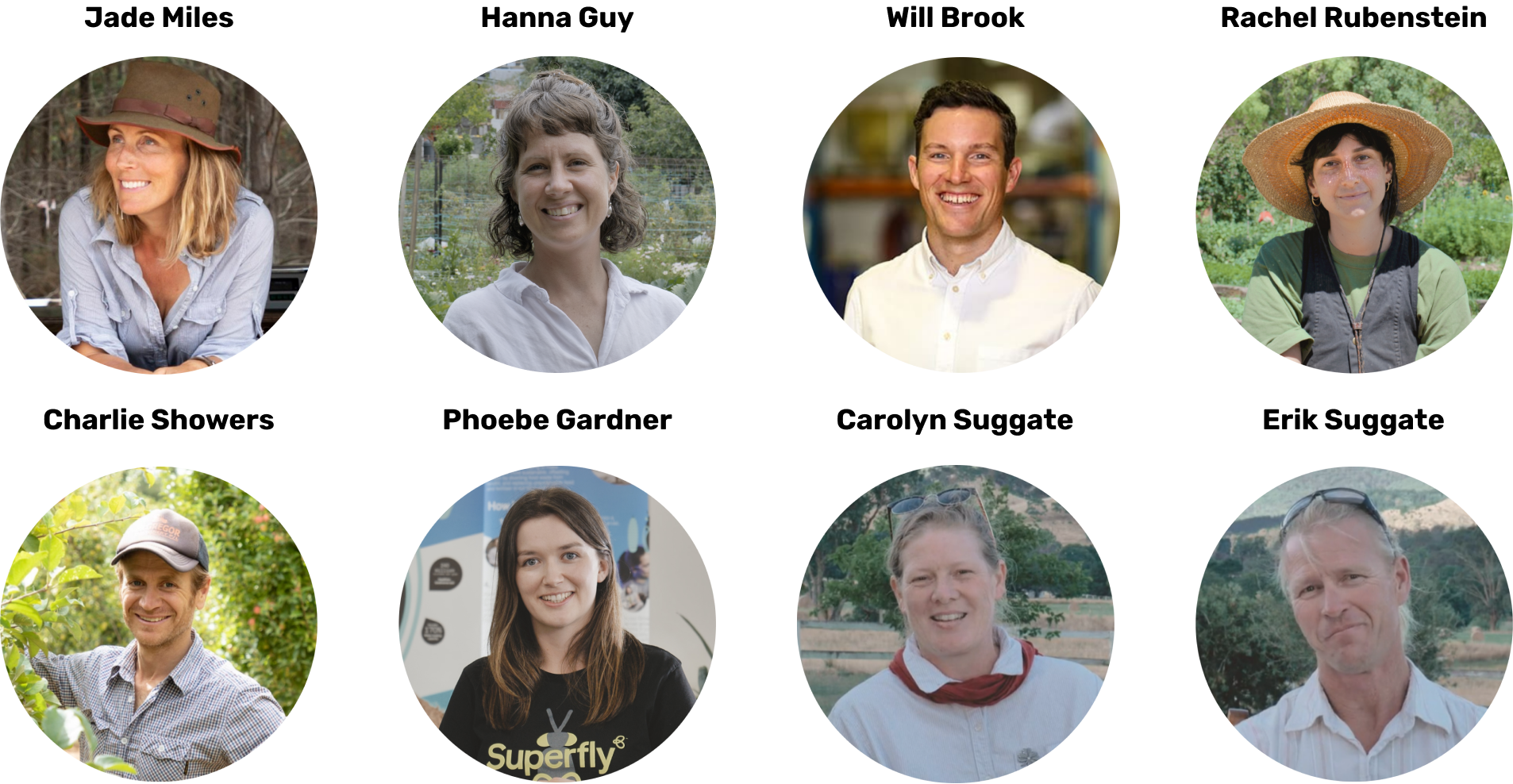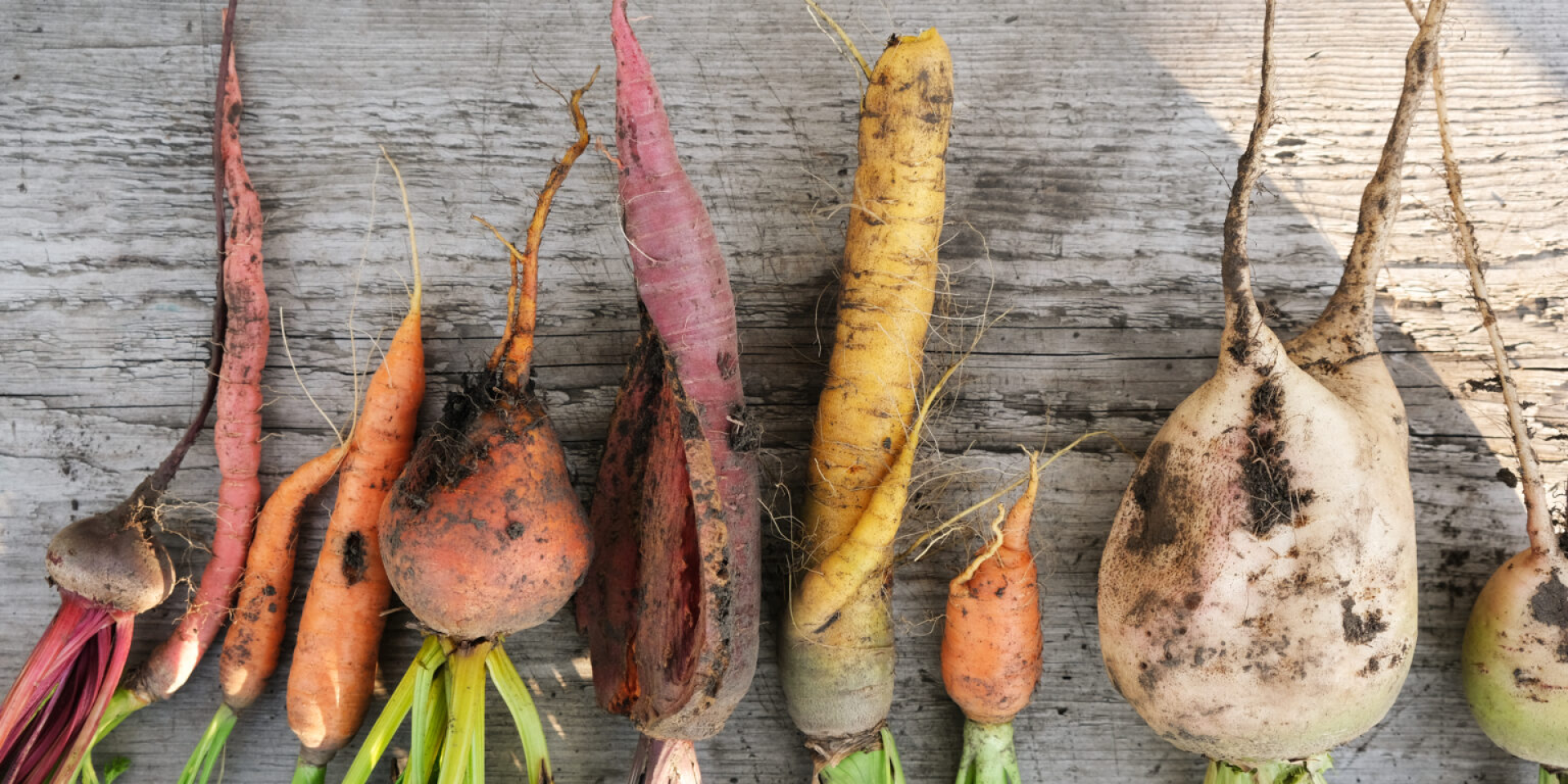What you'll learn
Understand the Role of Food in Building a More Sustainable Future
Guided by industry leaders passionate about building greater resilience in our food systems, this course will help you explore the connection between food systems and environmental sustainability, focusing on practical solutions to global challenges. By building a solid foundation in food sustainability, you’ll be empowered to make informed choices that contribute to a more sustainable food future.
Perfect for individuals with a passion for sustainability and a desire to make more informed choices on what and how they eat, this course provides a practical look at how food systems impact the environment, offering actionable steps you can take to support eco-friendly practices and build more resilience in our food system.
- Explore sustainable food systems: Learn about the essential elements of food production, distribution, and consumption that impact our planet.
- Understand the environmental impact of food choices: Gain insights into the ecological footprint of various foods, including energy, water use, and greenhouse gas emissions.
- Discover sustainable farming practices: Investigate how regenerative and organic farming methods can protect ecosystems and promote biodiversity.
- Support sustainable consumption: Learn practical ways to reduce food waste, choose eco-friendly food sources, and support a more resilient food system.
Learning Outcomes
By the end of this Sustainable Food Systems course, you will be able to:
- Describe the basic principles of sustainable food systems and their significance.
- Assess the environmental impact of food production and consumption.
- Recognise the role of agriculture in sustainability, including practices like regenerative farming.
- Identify ways to support sustainable food practices in daily life, from mindful shopping to waste reduction.
- Understand how consumer choices impact food systems globally.
- Apply strategies for reducing personal food waste and choosing environmentally friendly options.
Once you complete the course, you will be issued a Digital Badge and a Certificate of Completion.
Course Content
What will be covered in this Sustainable Food Systems course?
During this course, a panel of industry experts will guide you through the following topics:
- Introduction to Sustainable Food Systems: An overview of food systems and their environmental impact.
- The Environmental Impact of Food Choices: Explore how various foods impact water, energy, and carbon resources.
- Regenerative & Organic Farming Practices: Learn about eco-friendly agricultural methods that support biodiversity.
- Food Consumption & Waste: Understand ways to reduce food waste and make responsible consumption choices.
- Global Food Sustainability Challenges: Examine the major global challenges facing food systems and the solutions being implemented worldwide.
Course activities & (optional) assignments
Please note there is no requirement to submit any activities in this course for grading. However, the course includes the following activities and assignments for practical application:
- Food Impact Audit: Evaluate your current food choices and identify areas to reduce environmental impact.
- Sustainable Food Plan: Develop a plan to incorporate more sustainable food options into your daily routine.
- Waste Reduction Challenge: Track and reduce food waste at home over a two-week period.
This course takes approximately 10 hours to complete.
Intended Audience
Who is this Sustainable Food Systems course for?
This course is ideal for:
- Eco-conscious individuals seeking to deepen their understanding of sustainable food practices.
- Community leaders and advocates looking to promote sustainable food systems within their communities.
- Professionals in related fields like agriculture, food services, and environmental sciences who want to expand their knowledge in sustainability.
Course Materials
This course is delivered online through a partner education provider. You will need access to either a computer, laptop, or tablet with an internet connection. No other prerequisites are required. This self-paced course fits around your schedule, featuring:
- Engaging video lessons and insights from industry experts
- Quizzes and activities to help solidify your understanding
- Self-paced learning on a user-friendly platform, with instant support from its AI-powered Learning Assistant
Student Reviews
Featured Experts
This course features a panel of experts in sustainable food systems, regenerative agriculture, and eco-friendly innovations:

- Jade Miles – National Program Manager at Sustainable Table, regenerative heritage fruit farmer, and owner of Black Barn Farm. Jade is an author and food advocate dedicated to reconnecting people with nature and sustainable food practices.
- Hanna Guy – Operations Manager at Sustainable Table, with experience in community development and sustainable business. Hanna founded a sustainable fashion company and promotes regenerative food systems.
- Will Brook – CEO of Brookfarm, a leader in regenerative agriculture and community engagement. The Brook family in Byron Bay transformed a dairy farm into a thriving macadamia orchard and food production business, contributing to biodiversity and environmental stewardship.
- Rachel Rubenstein – Urban Farmer at CERES, where she manages Joe’s Market Garden, connecting urban communities to organic farming and sustainable food systems.
- Charlie Showers – Holistic Orchardist and Landscape Scientist at Black Barn Farm. Charlie advocates for fair food systems and sustainable agriculture through his work in biodiverse, community-driven orcharding.
- Phoebe Gardner – CEO and Co-Founder of Bardee, an agricultural innovator using insects to convert organic waste into protein and fertiliser, significantly offsetting CO₂ emissions.
- Carolyn & Erik Suggate – Regenerative Farmers and Co-Owners of Eat Local Eat Wild, an organic farm promoting localised, resilient food systems. Carolyn is also the founder of ORICoop, supporting sustainable transitions in agriculture.
Course tutors
Great reasons to enrol in a short course with us
Small classes
A personal approach means quality learning, so you can enjoy plenty of interaction with your instructor and the chance to ask questions.
Short & sweet
Our short courses & workshops get straight to the point, providing the skills you need with minimal commitment of your precious time.
Facilities & equipment
Our range of venues suit every type of course, are easy to get to, and have the equipment and tech needed to support your learning.
Easy, secure enrolment
Enrol online 24/7 with a safe, convenient 3-step process, and you can change your mind up to 7 days before class starts.
Quality instructors
Our educators bring first-hand experience and knowledge, with up-to-the-minute practices from diverse industries.
Business or pleasure
Our courses help you rapidly increase your skills and knowledge, for professional development or personal interest.
4.7 starsaverage rating on Google
1,400+courses to choose from
99%customer support rating
Classes Online Courses
<p>Understand the Role of Food in Building a More Sustainable Future</p>
<p><em><div style="position: relative; width: 100%; padding-bottom: 56.25%; height: 0;"> <iframe src="https://
...Approximately 10 hours
















